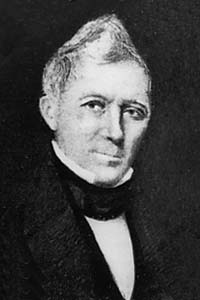Wilson Lumpkin
| Wilson Lumpkin | |
|---|---|
 |
|
|
United States Senator from Georgia |
|
|
In office November 22, 1837 – March 3, 1841 |
|
| Preceded by | John P. King |
| Succeeded by | John M. Berrien |
| 35th Governor of Georgia | |
|
In office November 9, 1831 – November 4, 1835 |
|
| Preceded by | George R. Gilmer |
| Succeeded by | William Schley |
| Member of the U.S. House of Representatives from Georgia's at-large district |
|
|
In office March 4, 1829 – 1831 |
|
| Preceded by | district created |
| Succeeded by | Augustin Smith Clayton |
| Member of the U.S. House of Representatives from Georgia's 4th district |
|
|
In office March 4, 1827 – March 3, 1829 |
|
| Preceded by | district created |
| Succeeded by | Hugh A. Haralson |
| Member of the U.S. House of Representatives from Georgia's at-large district |
|
|
In office March 4, 1815 – March 3, 1817 |
|
| Preceded by | George Troup |
| Succeeded by | Thomas W. Cobb |
| Member of the Georgia House of Representatives | |
|
In office 1804-1812 |
|
| Personal details | |
| Born |
January 14, 1783 near Dan River, Virginia |
| Died | December 28, 1870 (aged 87) Athens, Georgia |
| Political party | Democratic |
Wilson Lumpkin (January 14, 1783 – December 28, 1870) was a governor of Georgia, and a United States Representative and Senator.
Born near Dan River, Virginia, he moved in 1784 to Oglethorpe County, Georgia with his parents, who settled near Point Peter and subsequently at Lexington, Georgia. He attended the common schools, and taught school and farmed; he studied law, and was admitted to the bar and commenced practice in Athens, Georgia.
Lumpkin was a member of the Georgia House of Representatives from 1804 to 1812, and was elected as a Representative to the Fourteenth United States Congress, serving from March 4, 1815 to March 3, 1817. He was an unsuccessful candidate for reelection, and was the State Indian Commissioner. He was elected to the Twentieth, Twenty-first, and Twenty-second Congresses and served from March 4, 1827, until his resignation in 1831 before the convening of the Twenty-second Congress to run for the governorship; he was also commissioner on the Georgia–Florida boundary line commission. He was elected Governor of Georgia in November 1831. In that election he received 27,305 votes and the incumbent governor George R. Gilmer received 25,863 votes. He was reelected as governor in 1833 due in part to the nullification crisis and served until 1835. In 1835, he was appointed commissioner under the Cherokee treaty. He was elected to the U.S. Senate to fill the vacancy caused by the resignation of John P. King and served from November 22, 1837, to March 3, 1841; while in the Senate, he was chairman of the Committee on Manufactures (Twenty-sixth Congress). Lumpkin owned 20 slaves in Athens, Georgia. Lumpkin was a member of the State board of public works, and died in Athens in 1870; interment was in Oconee Hill Cemetery.
...
Wikipedia
